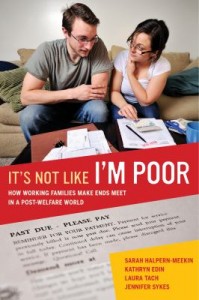E-books are pretty awesome. You get the same content as a physical volume, but you can read it anywhere you can access the Internet. Which means, 9 times out of 10, all you need is your phone or laptop (which you’re carrying around anyway). You can find hundreds of e-books in The Ames Library catalog – just search like you normally would for a specific title.
Normally, e-books are just as expensive as physical volumes, because you’re purchasing the rights to view them. These costs can add up quickly. But wait, you’re in luck! Our academic library consortium, CARLI, has negotiated a multi-publisher program that allows e-books to be shared among all CARLI library users in Illinois. The program provides over 29,000 titles in all disciplines; the publisher list is included at the end of this message.
Catalog records for these titles are available in our local catalog and the I-Share catalog. You may also visit the CARLI eBook website to access the titles directly. You will be prompted to authenticate, whether or not you are on campus, to enable tracking of circulations. These e-books have a 7 day loan period and users can view content online, download and print. Once a title has been used 9 times, it is purchased by CARLI for permanent use by all libraries.
This pilot program comes as part of our CARLI governing library membership and follows months of negotiations by the CARLI staff. Shared consortial e-book programs are still quite unusual, as publishers are leery of this changing marketplace. The library faculty look forward to your feedback on this program. If you have comments to share, please contact Karen Schmidt, University Librarian.
Still not sure? Here’s one e-book brought to you through this program.
 It’s Not Like I’m Poor: How Working Families Make Ends Meet in a Post-Welfare World
It’s Not Like I’m Poor: How Working Families Make Ends Meet in a Post-Welfare World
From the publisher’s website: “The world of welfare has changed radically. As the poor trade welfare checks for low-wage jobs, their low earnings qualify them for a hefty check come tax time—a combination of the earned income tax credit and other refunds. For many working parents this one check is like hitting the lottery, offering several months’ wages as well as the hope of investing in a better future. Drawing on interviews with 115 families, the authors look at how parents plan to use this annual cash windfall to build up savings, go back to school, and send their kids to college. However, these dreams of upward mobility are often dashed by the difficulty of trying to get by on meager wages. In accessible and engaging prose, It’s Not Like I’m Poor examines the costs and benefits of the new work-based safety net, suggesting ways to augment its strengths so that more of the working poor can realize the promise of a middle-class life.”
